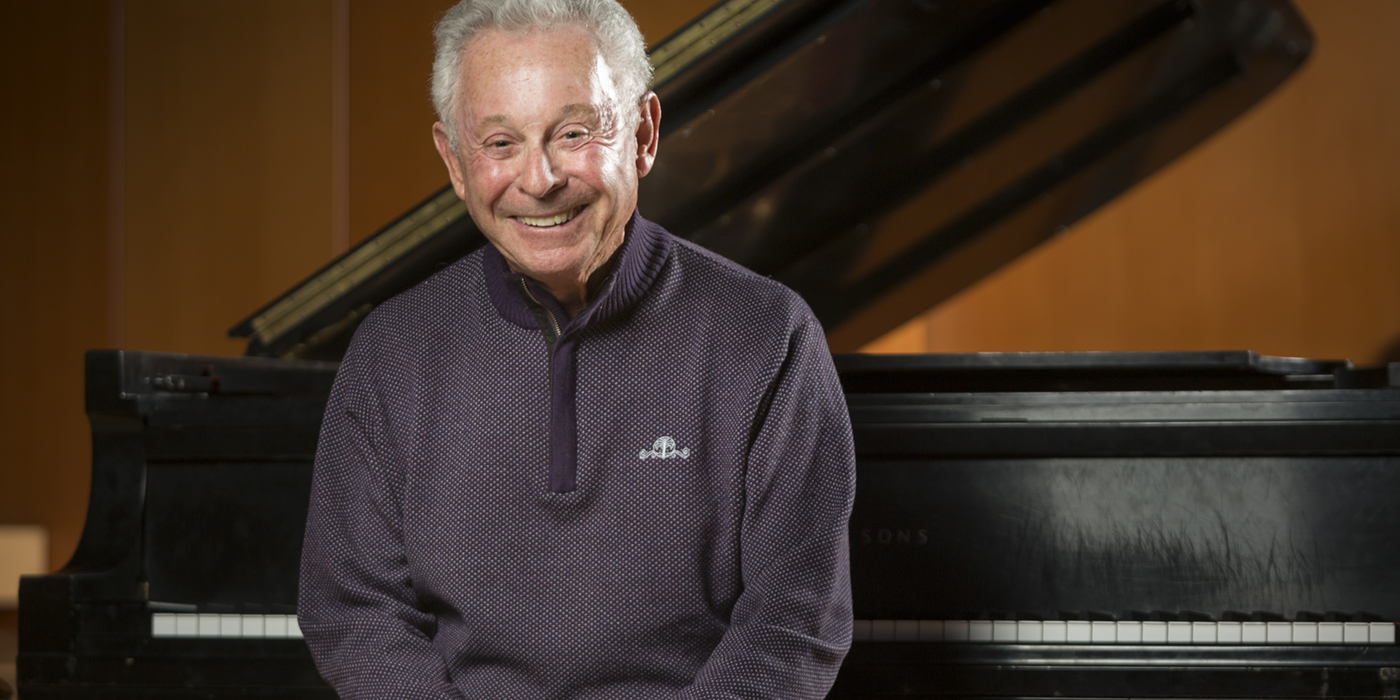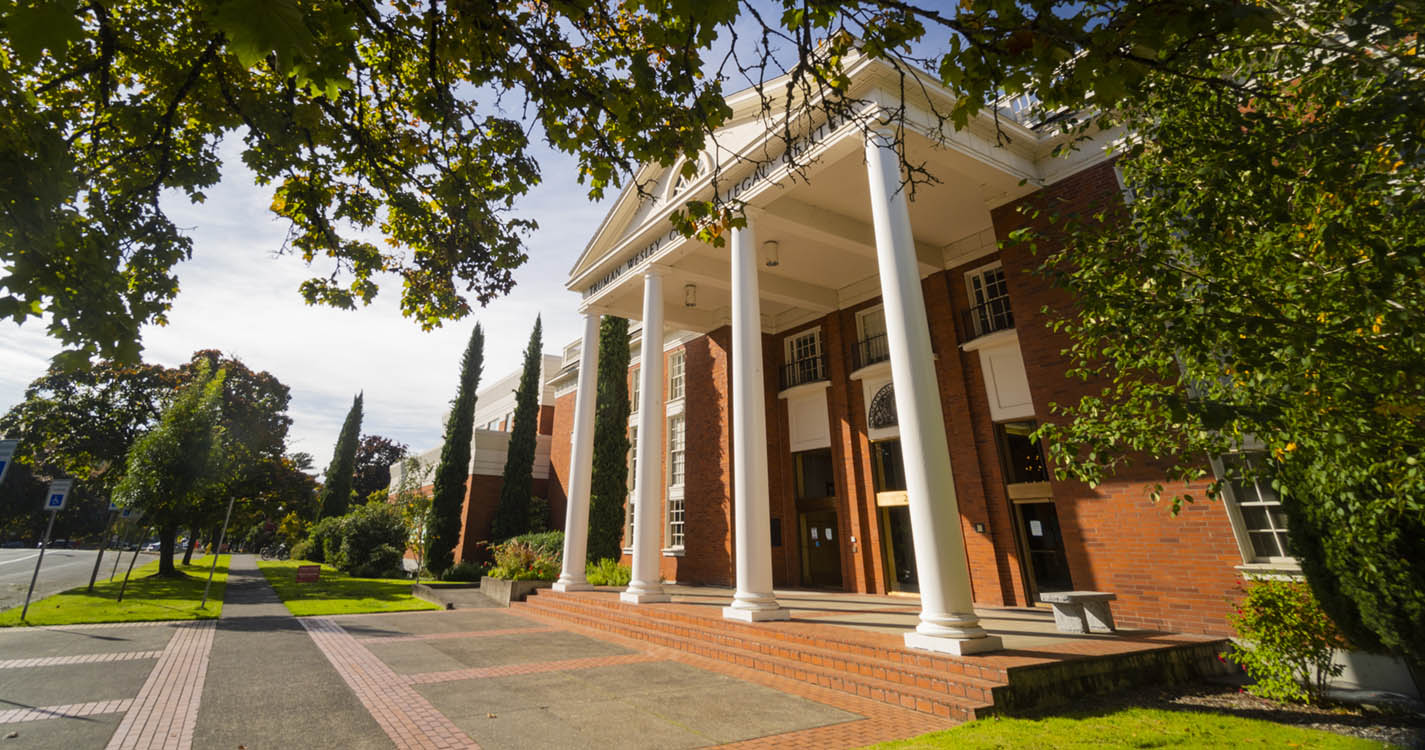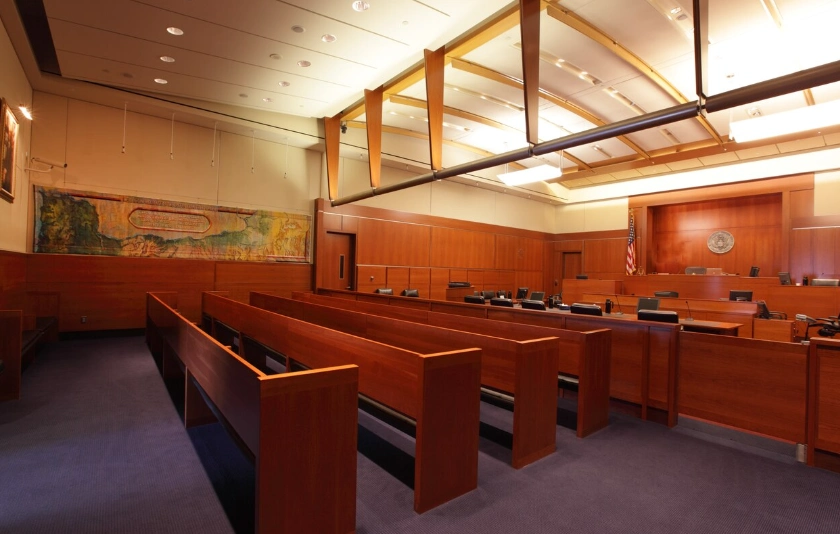In 1959, Marty Wolf ’57, LLB’60 helped catapult Willamette Law into the national spotlight when he and his team won the National Moot Court Competition. Following his most recent $2 million estate gift, making him the law school’s largest individual donor, he hopes to support students with the resources needed to expand experiential learning in the Pacific Northwest, again increasing Willamette’s national presence.
Winning the Moot Court competition opened doors for Wolf following his law school graduation. He clerked for a California Supreme Court justice, then joined a law firm in Portland. Eventually, he discovered a love for business, and in 1970, took over the family enterprise.
His legal education complemented what he learned in the business world. With his now-$5 million pledged to Willamette Law, he wants to help students recognize the potential and benefit in graduating law school with knowledge and experience in transactional lawyering, business acumen, leadership and transferable skills.
Being a lawyer doesn’t necessarily mean a person has to work at a law firm, he explains. He knows firsthand how a legal degree can allow someone entry into other fields — and help them become successful.
“When students start law school, they may be thinking about private practice, environmental law, social justice law,” Wolf says. “They don’t necessarily think as much about business applications. But, in my career, I used my law degree so much. I want to see Willamette Law’s experiential learning expand and legal education become broader-based, so it’s not just about the practice of law.”
Experiential learning at Willamette
Prior to 2010, U.S. law schools did not mandate experiential learning. The American Bar Association began requiring that each student earn at least one credit in experiential learning in 2010, growing the requirement to at least six credit hours in 2015. Simulation courses, law clinics or field placements, such as externships, satisfy the rule.
At Willamette Law in Salem, with the Signature Strengths Initiative and increased emphasis on simulation learning, Centers and Certificate Programs, students have encountered growing opportunities for experiential learning over the past several years.
Courses offering hands-on work in clinics, business lawyering simulations, and practice for trials and arbitration are offered each semester. More experience can be gained while earning certificates, participating in competitions, and working part-time in externships.
The practical education opportunities, rather than those including only papers and exams, have developed a common theme: high student demand.
Interest in the Clinical Law Program, comprising four clinics in business law, trusts and estates, child and family advocacy, and immigration, has increased exponentially since 2005. Students like William Grasty JD’21 enjoyed being able to meet with clients and do real legal work before graduation. Grasty’s work through the Business Law Clinic helped a local winemaker trademark his logo.
“Working at the Willamette Business Law Clinic provided me with an extraordinary opportunity to build conceptual and organizational skills, work with start-ups at a very early stage of their existence, and shape my future by carrying these tangible, invaluable skills into my planned area of practice,” Grasty says.
Although the excitement about the program has continued to grow, the clinics are resource-intensive. Even with clinical enrollment exceeding capacity for 13 of the last 15 years, the intentional limits on clinic sizes mean that they, alone, can’t serve the entire student body.
Students have also become more enthusiastic about externships, where they can develop their skills in a part-time field placement. Professor Theresa Wright JD’81 became the director of externships in August 2015, then working part-time. In January 2020, she transitioned to a full-time role to keep up with the program’s popularity.
“The program grew so much that I needed the additional time,” she says.
During the 2015–16 academic year, 38 students participated in externships. In 2019–20, 86 students took part, representing a 126% increase in just five years.
Outside of classes and externships, students can choose to join any of nearly 30 student organizations representing a broad scope of interests and perspectives. While some focus more on peer support, such as Parents Attending Law School, others, such as Moot Court Board, the Willamette University Public Interest Law Project (WUPILP) and the Business Law Society, focus their efforts more on giving students real-world experience in particular areas of the law.
Speakers are invited, networking events are planned, and panel discussions are held to increase students’ knowledge and connections. Some of the cocurricular activities include student competitions testing important skills in Trial Advocacy, Negotiation and Moot Court.
“Despite full class loads, and oftentimes families at home, engaged students tend to be a part of multiple organizations,” says Maegan Dunlap, student services manager in the Office of Student Affairs.
Even with the myriad opportunities for experiential learning, where Willamette Law could grow the most and reach all students is within its simulation courses, where students practice the material they’re learning in real-time. Partially developed as part of the vision for Dean Emeritus Curtis Bridgeman’s Business Lawyering Institute, workshop classes like Professor Karen Sandrik’s “Deals” and Professor Aaron Simowitz’s “Negotiations” have waitlists several students long most semesters.
Students are looking for those classes that offer more than multiple choice exams and briefs, Simowitz explains. It’s an enthusiasm that won’t likely decrease without more resources like additional faculty and staff.
“Students, employers and the ABA are all asking for the same thing — more experiential education. It’s not just a way to teach essential lawyering skills, it’s the best way to learn the law,” Simowitz says. “We’re seen that demand for experiential education is far greater than what we’re able to supply right now. Students want more experiential education in the first year, in upper division classes, and in clinics and externships.
“But designing an experiential course, running a clinic, supervising externships — all of those take time and resources. It is well worth the investment.”
Increasing opportunities
With $2 million now earmarked for the Martin R. Wolf Curricular Innovation Fund, Wolf’s donation will help provide the support needed to grow experiential learning opportunities at Willamette Law. Ultimately, Wolf wants Willamette to be recognized as the leading experiential law school in the West.
Though it’s an estate gift and won’t be realized immediately, Dean Brian Gallini says it will help the school continue on the positive trajectory initiated by Bridgeman’s leadership and a forward-thinking faculty.
“In the past few years, Willamette Law has transformed its legal curriculum. We’re already doing a lot of great work, and this gift will help ensure that in the future, we can continue that work,” Gallini says. “We’ll have the resources in perpetuity to keep innovating in experiential learning and ensure a legacy in Salem.”
At 86, Wolf is a tireless advocate for the school and its mission. He hopes his donations will inspire others to give, as well, to help shape it into a leader in legal education.
With the expansion of hands-on, experiential learning and curricular modernization at Willamette Law, he is confident that more students will join the school across from the Oregon State Capitol.
“Anything I can do to help that happen, I’m happy to participate in,” he says.




